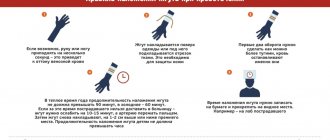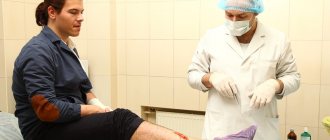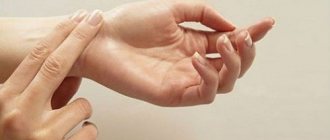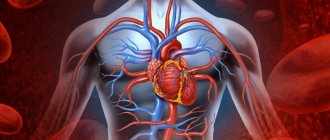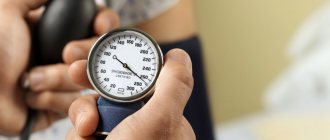The fatal pulse for a person is calculated according to the “220-age” principle, but official medicine believes that a pulse rate of 160-170 beats per minute can already lead to death. If such increases occur only after active physical activity, then they do not pose a danger to life, but achieving the indicated numbers at rest is a reason to call an ambulance.
Before death, a person’s pulse, on the contrary, decreases to its maximum – reaching 20-40 beats per minute, and may not be palpable at all. This is pre-agony, after which a short-term increase in heart rate is possible. First aid for a critically high pulse can be provided even without medical education - help the patient take the correct position, give Validol or Anaprilin tablets, and measure blood pressure.
Pulse rate
The normal heart rate for a healthy person is 60-90 beats per minute. For a child under 15 years of age, the average is very different. The younger the child, the faster his heart beats. In babies under one year old, a pulse of up to 135 beats per minute is considered normal. In children 3-5 years old, this value drops to 110. At 9 years old, 95 heart beats per minute is considered normal. And by the age of 15, the heart beats the same as that of an adult.
By measuring the pulse, many diseases can be diagnosed, so it is important to carry out a preventive examination at least once a month. In addition to the frequency of contractions of the heart muscle, doctors also pay attention to its rhythm. If the heart skips beats, the patient is diagnosed with arrhythmia, which also indicates a health problem. An increase in heart rate, as well as a slowdown, is a pathology and should not be left without treatment. An excessively rapid pulse is called tachycardia, and a low pulse is called bradycardia. What factors can influence the frequency of strokes?
- Age.
- Weight.
- Height: the taller a person is, the slower the heart beats.
- Times of Day.
- Menstrual cycle.
- Alcohol.
- Food.
- Chronic pathologies.
Cause of heart palpitations
Normal heart rate depends, first of all, on age, but it is also worth remembering that each organism has its own characteristics.
- The normal heart rate for newborns is 110-140 beats/min.
- In children under 7 years old – 95-100 beats/min.
- In adolescents – 75-85 beats/min.
- In adults – 60-80 beats/min.
- In the elderly – 60 beats/min.
If the heart rate exceeds the specified values, then we can talk about a rapid heartbeat.
First of all, you should determine the reasons for the increase in heart rate to 85 beats or higher. They can be both pathological and normal physiological. In the first case, you need to pay special attention to this symptom.
Measurement methods
Many factors can influence your heart rate. Anxiety, stress, physical activity, and various diseases can increase heart rate values. To obtain an adequate result, it is important to take these factors into account. In order to know what your maximum heart rate is and prevent tachycardia, it is important to measure your heart rate from time to time. There are several ways to do this. You can measure your pulse either using instruments or simply by pressing the artery with your finger. The heart rate is best felt on the inner bend of the elbow, on the neck and on the wrist. By placing your finger on one of these places, you can easily count your pulse rate. A heart rate monitor in the form of a watch or bracelet measures heart rate more accurately. The use of heart rate monitors is possible when necessary or on an ongoing basis. Many companies produce these devices in the form of watches or bracelets that read indicators around the clock. This way you receive data about your health over a long period of time.
But the easiest way to measure your pulse is simply by touching it - this method does not require special equipment. The most common way to measure the number of heartbeats is at the wrist. To get an accurate result, you need to sit on a chair and put your hand on the table, completely relaxing it. Then count your pulse for 60 seconds, having previously set a timer.
Upper limit of normal
What is the maximum heart rate for a person? Medicine allows exceeding the norm by five beats per minute. Only within this limit can the heartbeat still be considered healthy. Thus, the upper limit for a healthy person is 83/85 heart beats per minute. A pulse of over 100 beats per minute is considered high. If you measure your heart rate at rest and the device shows high values, then you should consult a doctor as soon as possible. But there are some situations in which the heart begins to beat faster and this is not considered a deviation from the norm. A person’s maximum heart rate generally depends very much on many factors. Why might the heart rate increase?
- Emotional stress affects the hormonal, endocrine and cardiovascular systems. Adrenaline and cortisol are released into the blood, which makes the heart beat faster. Breathing techniques and medications can help cope with stress.
- Intense pain causes the same reaction as stress. If severe pain is not relieved for a long time, it can have a detrimental effect on the heart.
- A person's maximum heart rate during training can also reach extreme values. Therefore, it is important to monitor your heart rate during exercise. If your heart starts beating too fast, it is better to stop training and rest for a while.
- A stuffy room or certain illnesses can also affect your heart rate.
There are many factors that cause a person's maximum heart rate per minute. If attacks of tachycardia occur rarely, and you know their cause, then there is no need to worry. But if an increase in heart rate occurs spontaneously, then it is best to consult a doctor.
Factors that can provoke increased heart rate
If an increase in heart rate occurs when a person is at rest, it is necessary to find out what factors provoke this phenomenon:
- Pregnancy, toxicosis.
- Fever.
- Acute forms of respiratory diseases.
- Hypertension.
- Age-related changes.
- Excess weight.
- Uncontrolled use of medicines.
- Alcohol.
- Excessive consumption of caffeinated drinks.
- Use of substances that can alter mental state.
- Use of antidepressants.
- Use of stimulants.
- Sleep disorders.
Many people are wondering if a pulse of 85 is normal?
How to determine your maximum heart rate yourself
There are many methods and formulas with which you can calculate the pulse for a specific person without averaged forms. Although these calculations are accurate, they do not take into account all factors, so the calculation error is 12%. The most famous formula is the Karvonen method, which determines the maximum possible heart rate in a person. To do this, you need to subtract your age from 220. For example, for a 30-year-old person, the maximum value would be 190 beats per minute. However, doctors do not recommend taking it to this point and allowing such critical values.
Another formula is considered more accurate: 205.8 - (0.685 * age). The result obtained is the upper heart rate bar. There are several pulse zones that affect many body processes. During training, to achieve the best results, you should try to keep your heart rate within the desired zone. For fat burning, 60-70% of the maximum heart rate is enough. Maintaining a low heart rate for a long time is good for your workout results and indicates a strong heart muscle.
Pulse life-threatening
If the pulse exceeds the maximum values, the person’s heart may simply stop. Even at 120 beats/minute, most people no longer feel very good, what can we say about values of 190-200. Despite the fact that heart rate indicators are individual, there are certain values that are considered critical. In medicine, when the level of 180 beats per minute is reached, the patient is prescribed medicinal droppers and drugs that reduce the heartbeat. Every person should have such medications in their medicine cabinet, because sudden stress can happen to anyone, which will increase their heart rate.
Most often, the pulse goes through the roof in athletes. In the midst of training, not many people pay attention to this and end up with serious injuries. The record for the maximum heart rate in a person was 220 beats per minute. This is almost twice the normal rate, and with such a pulse, you urgently need to stop the activity and get the necessary help. It is best to calm down and wait out the tachycardia by sitting down and drinking some water. Most often, this has the desired effect and the person feels better. After an attack of rapid heartbeat, it is better to avoid any physical activity.
Increased heart rate with increased blood pressure
High blood pressure along with a rapid heartbeat often occurs under the influence of normal causes, such as mental arousal and physical stress.
This phenomenon is explained by physiology: physical activity provokes the release of adrenaline, which, in turn, causes an increase in blood pressure and an increase in heart rate.
Therefore, if heart rate and pressure indicators are not critical, and other symptoms are not noted, the phenomenon can be considered a normal reaction of the body.
However, such a condition may also indicate the presence of certain pathologies:
- Respiratory system disorders.
- Oncological neoplasms.
- Anemia.
- Disturbances in the functionality of the thyroid gland.
In addition, high blood pressure can be life-threatening, so it is recommended to consult a doctor.
Maximum heart rate during arrhythmia
Functional arrhythmia occurs for many reasons: emotional stress, overload, sports, drinking coffee and alcoholic beverages. What is the maximum permissible heart rate for a person with arrhythmia? Doctors indicate 90 beats per minute as the maximum value. If the heart rate exceeds this figure, then negative changes begin to occur in the body. An increased pulse due to arrhythmia is usually accompanied by the following symptoms:
- Increased breathing.
- Dizziness.
- Darkening in the eyes.
- Unreasonable anxiety and fear.
Dangerous pulse for humans: causes
The causes of a dangerous pulse for a person can be:
- alcohol, drug addiction;
- acute lack of potassium and magnesium in the body;
- food poisoning, poisons, toxic gases;
- mental or nervous disorders;
- pathologies of the endocrine system that occur in severe stages.
Critically high pulse rates can also occur against the background of coronary heart disease, cardiosclerosis, myocarditis, heart defects of various nature and origin, acute blood loss, traumatic/mechanical damage to the heart muscle. Typically, the listed diseases are under the control of doctors - patients are registered, undergo regular examinations/diagnosis, and take specific medications on a regular basis.
But if there is no therapy, the patient does not get rid of bad habits and does not comply with the recommendations/prescriptions of the attending physician, then the death outcome against the background of the highest possible pulse rate is quite predictable.
Maximum allowable heart rate during sports
A high heart rate is considered to be more than 100 heart beats per minute at rest. What is the maximum heart rate for a person who plays sports? This figure can be found by calculating your heart rate using one of the formulas given above. It is best not to exceed this indicator under any circumstances. Why is heart rate so important during sports? Heart rate affects the performance of exercises. If you follow a diet, go to the gym regularly, but do not see any changes, then you should pay attention to your pulse. Many exercise machines have special heart rate monitors that read information and display it on the screen. The program adjusts your heart rate to your target and warns you if you go beyond the heart rate zone.
A person’s maximum heart rate during physical activity can also be determined by smart bracelets and watches. They are fixed on the wrist and read the number of beats per minute. They can also be used in everyday life to monitor your health. Many reasons can prompt a person to monitor their heart rate. Both during sports and in everyday life, it is important not to exceed the maximum values. The current record for the maximum heart rate in humans is 220 beats per minute. A too fast heartbeat wears out the heart muscle and can lead to various pathologies, including death. Therefore, it is important not to reach such values.
Diseases indicated by a high pulse
If a person seeks help from a doctor with a problem of tachycardia, first of all, he is prescribed tests in order to diagnose the cause. Health problems can be expressed precisely in an increase in heart rate. You should start worrying when your pulse starts to go beyond 100 beats for no apparent reason.
- Most often, a person’s maximum permissible heart rate indicates problems with the cardiovascular system. Heart failure, ventricular dysfunction, arterial blockage, atherosclerosis and many other diseases can cause tachycardia.
- Neuroses, psychoses and other mental illnesses.
- Endocrine disorders affect the production of hormones in the body, which regulate all processes. Therefore, for example, increased levels of adrenaline or cortisol can affect heart rate.
- Medicines that have associated side effects affect the function of the sinus node. As a result, the tone of the sympathetic nervous system increases.
- Infectious and inflammatory diseases (blood inflammation, sore throat, pneumonia, etc.) place a serious burden on all internal systems in the body, including the heart. An increase in temperature is especially dangerous, so after 38.5 it must be brought down with the help of antipyretic drugs.
- Presence of tumors.
How can the disease be diagnosed? To do this, medicine resorts to a number of diagnostic procedures:
- ECG.
- Lab tests.
- MRI.
- Ultrasound.
Having the necessary history and results in hand, an experienced doctor can easily make a diagnosis and prescribe treatment.
Situations in which you should contact a specialist
You should seek professional help if:
- As the heart rate increases, the blood pressure level rises sharply.
- There are heart pathologies.
- The functionality of the thyroid gland is impaired.
- Has diabetes mellitus.
- There are known cases of sudden death of relatives from heart pathologies.
- Close relatives have problems associated with heart rhythm disturbances.
- There is a pregnancy.
- Each subsequent attack is more severe than the previous one.
When the condition is not acute, but attacks become more frequent for no apparent reason, it is important to consult a cardiologist as soon as possible.
First aid
In case of rapid pulse, it is important to provide first aid in time in order to reduce the pulse. Before the ambulance arrives, it is important to provide all possible assistance to the victim.
- Stop any physical activity and take a horizontal position.
- Calm down. To do this, you can use breathing techniques or meditation. The main thing is not to start worrying even more - this will only worsen the situation.
- Unfasten uncomfortable clothing and ensure sufficient oxygen access. A stuffy room can provoke an attack of tachycardia.
- Apply a cold, damp cloth to your forehead.
- Drink cold water with ice.
A rapid heart rate above 90-100 beats per minute is dangerous in itself. But sometimes it is accompanied by other symptoms that indicate an impending heart attack:
- Chest pain.
- Dyspnea.
- Tremor in hands.
- Darkening of the eyes and lightheadedness.
- Swelling of the neck veins.
In this case, you can take medications that are in every first aid kit. A tablet of "Valocordin", "Valerian" or "Corvalol" normalizes the heartbeat. If these drugs are not on hand, you can brew soothing tea with lemon balm and chamomile. These herbs have a sedative effect, successfully replacing pills.
Increased heart rate with low blood pressure
A pulse of 85 beats can be combined with reduced blood pressure in the following conditions:
- Hormonal changes during pregnancy.
- Cardiopsychoneurosis.
- Myocardial infarction.
- Extensive blood loss.
- Toxin poisoning.
- Anaphylactic shock.
Low blood pressure with a simultaneous increase in heart rate may be accompanied by other symptoms: a throbbing headache, mild or moderate pain in the heart, and an unpleasant sensation in the chest.
So, pulse is 85, what to do?
Treatment
All medications for palpitations should be prescribed only by a cardiologist after a personal examination and the necessary tests. The most commonly prescribed drugs are:
- Anti-anxiety medications are effective in cases of emotional stress. This group includes medications such as Novopassit, valerian root, Afobazol. They can be purchased without a prescription, following the instructions for use.
- Medicines against arrhythmia reduce the heart rate and normalize it. The most commonly prescribed drugs are Verapamil, Adenosine and Flecainide. These medications can only be taken after a doctor's prescription.
In addition to the main treatment, the patient may be prescribed drugs that indirectly affect the cardiovascular system:
- Beta blockers normalize hormonal levels, which can be destabilized due to stress.
- Antioxidants.
- Cardiac glycosides.
But the most effective treatment method is still to prevent the occurrence of maximum heart rate. Doctors advise everyone who cares about their health to exclude fatty and spicy foods, alcohol and cigarettes from their diet. Regular exercise, such as running, strengthens the heart and improves endurance. A fully balanced diet of vegetables and fruits will provide the body with the necessary microelements. A lack of calcium negatively affects the heart, so it is important not to neglect this measure. Non-traditional treatments are also quite effective. Patients note significant improvement after acupuncture and herbal medicine. Quite often, an elevated pulse occurs along with high blood pressure, and it is important to address both problems at the same time.
Results
Regular measurement of the pulse allows you to assess the condition of the cardiovascular system and take timely measures to treat it. Knowing a person’s maximum heart rate per minute, you can understand how his body reacts to stress, physical activity and other factors. In order to correctly determine the number of heart beats per minute, you need to know the measurement technique, the calculation formula and be able to correctly evaluate the result. Many factors can affect your heart rate, from age to the food you eat, and you need to take this into account. A person's maximum heart rate during exercise should not exceed 160 beats per minute. If your pulse does not decrease for a long time, then this is a reason to consult a doctor as soon as possible.
Procedure for increased heart rate
Undoubtedly, self-medication is dangerous; it is important to consult with professionals in a timely manner and undergo all prescribed examinations. But in the absence of serious pathologies, certain measures can be taken to normalize heart rate at home:
- You should give your body moderate physical activity and adhere to a healthy lifestyle.
- In cases where the heart rate increases due to stress, you can undergo treatment with sedatives based on valerian or motherwort. But first you should study the manufacturer’s instructions, the rules for using the product and contraindications indicated therein.
- Reflexology.
- The use of decoctions based on sedative herbs. For example, you can use hawthorn infusion. To prepare it, pour 15 grams of berries with a glass of boiling water and leave for an hour in a warm place. You should drink this infusion three times a day, a third of a glass, about half an hour before meals.
- It is recommended to saturate your diet with foods that have a beneficial effect on the activity of blood vessels and the heart. Among them are nuts, parsley, beets, rose hips, and currants.
- An unconventional method of normalizing heart rate is the use of clay. When an attack occurs, a layer of clay should be formed and applied to the chest in the area of the heart.
- It is recommended to do breathing exercises. You need to inhale as much as possible, hold the air for 10-15 seconds, and then exhale it slowly. You can also do the following exercise - take a deep breath, pinch your mouth and nose, and try to exhale the air. In addition, trying to induce a gag reflex will help reduce your heart rate.
- If you have permission from a doctor, you can use Valocardin or Corvalol.
- Regular use of small amounts of honey in food and a honey neck massage will be effective.
Is heart rate 85 beats per minute normal? It is better to ask a doctor such a question for a specific person.



